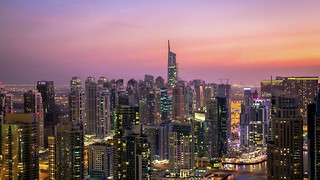What can young South Africans do now?
Morwenna Jones, who went to school in South Africa during her teens, looks at the country’s prospects for 2014 without ‘Tata Madiba’s’ guidance

As students around the world settle into 2014, the usual questions of new year’s resolutions and dissertation deadlines abound. However in South Africa, many are now asking themselves how to face the new year without their beloved ‘Tata Madiba’. From talking to friends from my time at Kingswood College in Grahamstown, the country’s future, sadly, does not look entirely hopeful.
When I asked Joanna, a white student at Stellenbosch University, whether she thought anything would change now that Nelson Mandela had passed away, she replied apathetically that "not much will change now that he is gone" but "he has left his legacy." However, she did not see this legacy as her own. As far as Joanna was concerned, Mandela was a hero, but not her hero, fighting for the black South Africans who, even now, work in her house as maids and labourers.
Nande – a black friend now at the University of Cape Town – thought that Mandela’s legacy has a rival: the legacy of apartheid. My own memories of townships, playing hockey against girls with no shoes, and beggar children outside fast-food chains were enough to confirm this, but she described how Mandela’s death highlighted the nation’s weaknesses. Nande spoke of the current fragility of the African National Congress, but more specifically, of the failings of the South African people. She described how "the culture amongst rich black people in SA now is to just be flashy and spend a lot of money on fancy cars and houses, instead of helping others out”. While she allowed that Mandela’s death has accentuated the need for change, she had little hope that this change would materialise.
This lack of enthusiasm regarding the likelihood of social transformation speaks volumes for how weakly the roots of Mandela’s legacy are planted. Many friends that I spoke to were reluctant to answer me, with many of my white friends even saying that they weren’t really bothered. Although Mandela was a man devoted to a free society and equal opportunities, this dedication seems to have failed to catch on. This is even more apparent when considered alongside President Jacob Zuma’s apparent indifference towards social reform. Until another unifying leader devoted to the cause of equality emerges, the nation’s motivation for democratic solutions to provide equal opportunities appears destined to stagnate.
There is also an astonishing lack of concern amongst the nation’s white farmers about an escalation in violence against their way of life. Julius Malema, the former ANC youth leader widely believed to be Zuma’s heir, has been seen singing the notorious hate song ‘Shoot the Boer,’ which encourages the murder of white farmers. I was amazed that the farm-owning family I lived with during 2006 had nothing to say on the matter. For white landowners, Mandela’s death could easily mark a turning point in the attitude of the ANC. Despite the problems this would cause for them, the country’s white population seems happy to wait and let events unfold for themselves.
Zuma may be a weak candidate to uphold Mandela’s legacy, but the legacy is also dependent on the nation’s people, especially the young. In many ways, 2014 looks as if it will be a year of greed for South Africa, with the wealthy indulging themselves and the dysfunctional seeking to ruin others. But such an apocalyptic forecast forgets the most important aspect left behind by Mandela: an almost universal sense of pride and admiration. It can only be hoped that black and white students of the next generation can harness his legacy and pursue the beliefs and convictions of the late Tata Madiba.
 Features / The community Cambridge accommodation creates (and doesn’t)9 August 2025
Features / The community Cambridge accommodation creates (and doesn’t)9 August 2025 News / Trinity sells O2 Arena lease for £90m12 August 2025
News / Trinity sells O2 Arena lease for £90m12 August 2025 Lifestyle / An ode to college accommodation11 August 2025
Lifestyle / An ode to college accommodation11 August 2025 Sport / ‘A full-time job with overtime’: should disparities change the way we approach Bumps?6 August 2025
Sport / ‘A full-time job with overtime’: should disparities change the way we approach Bumps?6 August 2025 Features / Incoming freshers and their hopes, fears and expectations for Cambridge 12 August 2025
Features / Incoming freshers and their hopes, fears and expectations for Cambridge 12 August 2025









